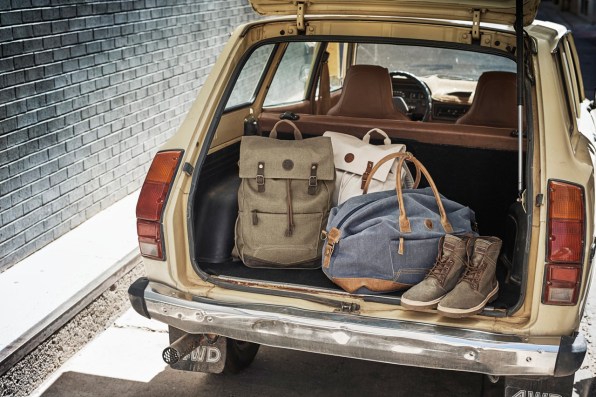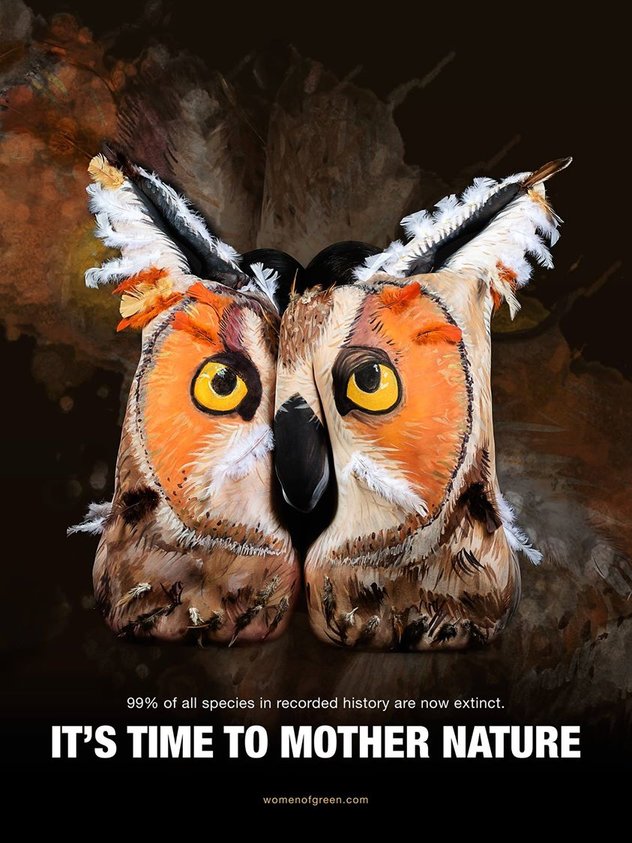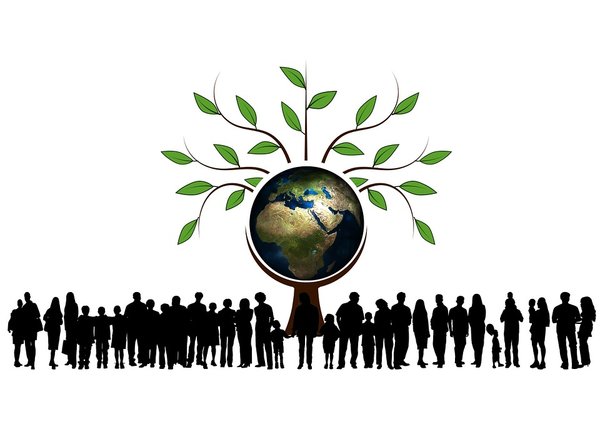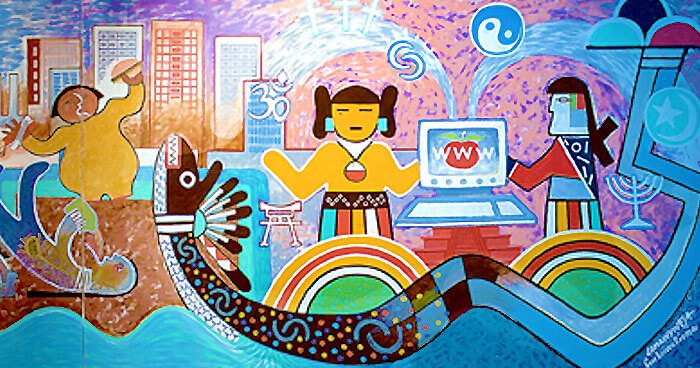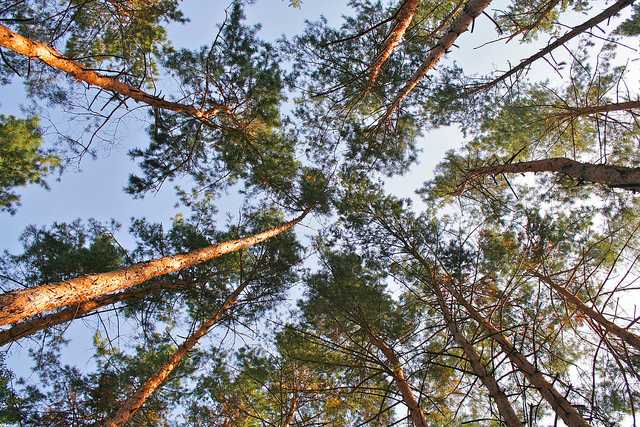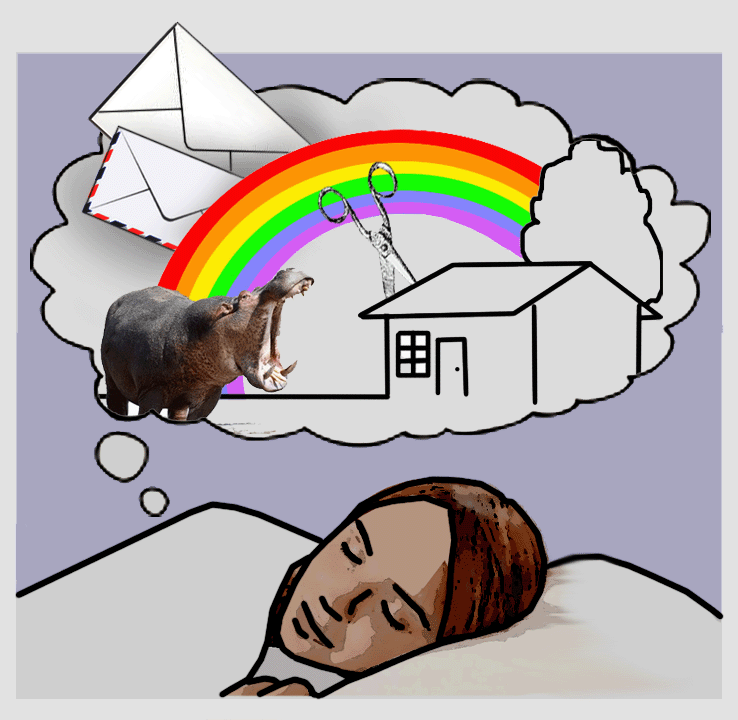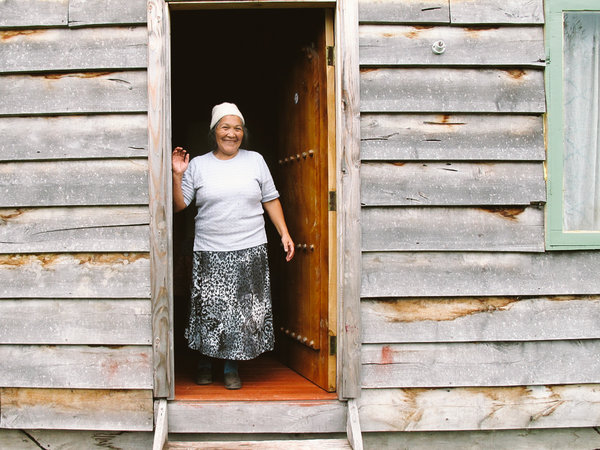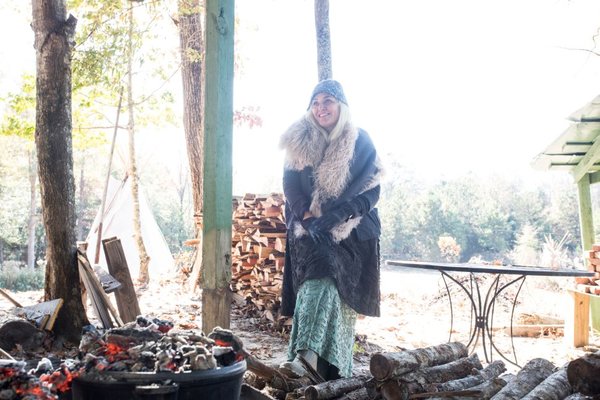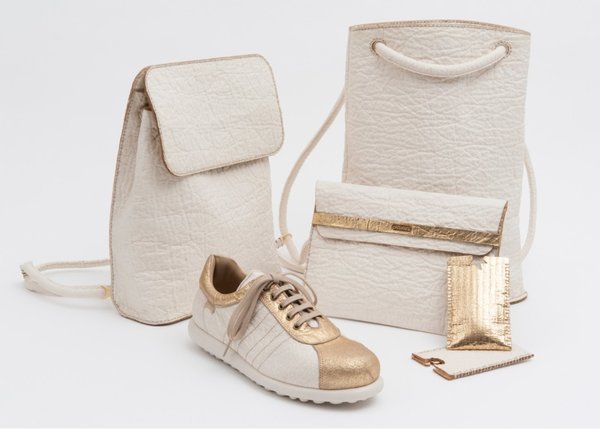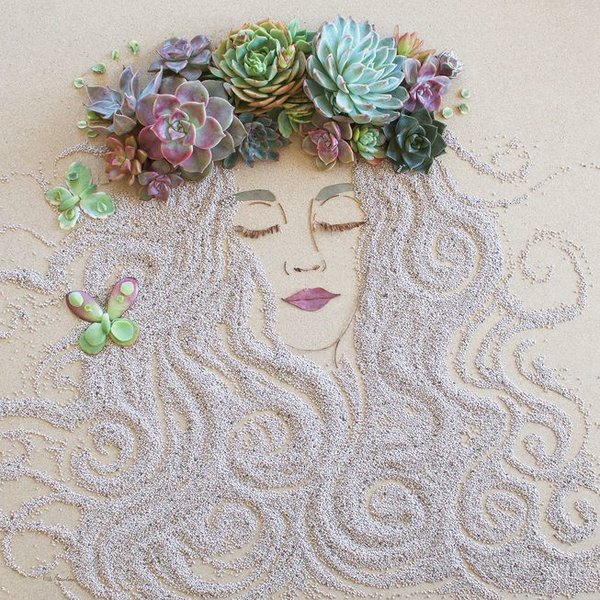The recycling organization, Thread, is teaming up with the shoe and apparel company, Timberland, to bring customers new products made from 50% recycled plastic, collected as part of an economic revitalization project in Haiti. In Haiti, for the fabric made for Timberland, more than 1,300 people collected plastic bottles, and sold them to 50 Haitian-owned and operated collection centers that Thread partners with. The process to turn a bottle into fabric is fairly simple: the plastic is mechanically broken down into flakes, put through something that looks like a Play-Doh extruder, and then rolled and manipulated into bales that can be spun into fabric. Plastic bottles are made from oil; so is polyester. When a bottle is recycled into fabric, the end result looks the same as if it had come from fossil fuels (it can also be recycled into other products, such as printer cartridges).
Continue reading... →This year, we had so much fun creating our Earth Day message for you and hope it will encourage others to see Earth Day as everyday! We gathered some of the most talented female artists we knew and created a Mother Nature Art Poster that is shown above. We named the campaign “It’s Time To Mother Nature” and began with the beloved long-eared owl (I have had numerous close encounters with these mystical birds so I just had to start with them). However, the whole point of our Mother Nature campaign is to increase awareness of the extremely volatile nature of all nature on our planet today. With reverence to the owl family, we created our owl out of human bodies. Two female models (I’m on the left) were body-painted and positioned to shape the owl’s head. It’s the first in a series of Women Of Green Art Posters and our plan is to create one a month for the next six months. But there is a good chance we’ll never stop! If you are an animal or nature lover like me, you can purchase our Mother Nature Owl Art Poster here. The proceeds from this collection will go toward our Women As Game Changers Entrepreneurial Training for women who are determined to change the world through their life’s work.
Continue reading... →Intelligent beauties respect the planet. So what’s a person to do when you know there’s more to being gorgeous than the latest hot lipstick hue and the perfect sweep of eye shadow? Make conscious buying choices. When you purchase Ecco Bella products you are honoring yourself and the environment. We, as a company, support regenerative agriculture. What is Regenerative Agriculture? Recognizing that our planet does not offer infinite resources, regenerative agriculture takes on the responsibility of improving the soil and the environment.
Continue reading... →Hopi are one of the oldest remaining ancient cultures in North America, known by many as Tibet of the West. Living in the arid Painted Desert where rainfall is minimum, the Hopi have perfected the art of creating thriving gardens known as dry farming. Their rich cultural traditions, dances, and spiritual practices give them a very special relationship with the finite resource of water. In 2006, Mexico City was hosting the World Water Forum, but it was being sponsored by corporations that aimed to profit off of the privatization and sale of bottled water. With waters from the around the world in gourds, the Hopi began a historic run from Northern Arizona to Mexico City as running is a traditional form of prayer for Hopi. The Hopi carried to the forum, the message that water is life and were met by indigenous chiefs from across Mexico in a historic gathering of North American indigenous people.
Continue reading... →We can rely on the wisdom from spirit; all we need can be found within us. Receiving wisdom and guidance from within and through dreams will increase one’s sense of peace, one’s self-confidence and the ability to trust life. It will help us to evolve spiritually, and improve our sense of connection to each other, to nature and our planet, which so very much needs healing. I will go out and tell the people: That is how I plan to change the game! Becky Cleland wrote a book, including the dreams in her own dream journal that carried the most insight and wisdom or were special in some way, and explained in her book, her own discovery of dreams as carriers of wisdom and insight—the title is Wise Dreams: Subtle Messages from the Inner Self, published by Balboa Press in 2013.
Continue reading... →If you didn’t know, the majority of the apparel we wear is made by women in developing countries, in unpleasant and cruel environments. This is a reality. The good news is we can do something about it! With this perilous situation, there are vast amounts of potential for the fashion industry to empower and uplift women. But, it’s going to take a lot of work. What you can do about it? Educate yourself, shop ethically and empower designers.
Continue reading... →Alabama Chanin’s success reflects an ongoing evolution in the fashion industry format from seasonal to sustainable. Natalie Chanin began making t-shirts that New Yorkers wanted to touch over 15 years ago. It started with a hastily refashioned tee for a swanky party. The rural Alabama girl thought it was unusual that the “fancy fashion city folk” handled her creation with wonder. This makeshift shirt opened an opportunity to connect with people from a different world. That’s how the founder and creative director of Alabama Chanin describes the advent of her sustainable slow fashion brand in an episode of storytelling podcast The Moth entitled “200 One-of-a-Kind Shirts,” recorded in April of 2014. She was moved to create more, and it was the quilting tradition of her grandmother’s generation and the pastoral inspiration of her hometown that drew her back to Florence, Alabama to start her business.
Continue reading... →New materials company Ananas Anam is using pineapple waste to create a new material that provides an animal-friendly alternative to leather. The material uses fine cellulose fibers extracted from pineapple leaves – which are considered an agricultural by-product that is often burned or left to rot. An estimated 40,000 tonnes of this pineapple waste is generated globally each year. Piñatex utilizes waste taken from pineapple plantations in the Philippines, with local factories separating the strands and felting them together into a non-woven fabric that can be used for clothes, footwear or furniture.
Continue reading... →Chicago-based artist Vicki Rawlins constructs whimsical portraits of enigmatic women using flowers, greenery, sand and other organic objects. These unconventional works of art are captivating not only for their creativity but also for their ephemeral journey to creation and destruction.
Continue reading... →